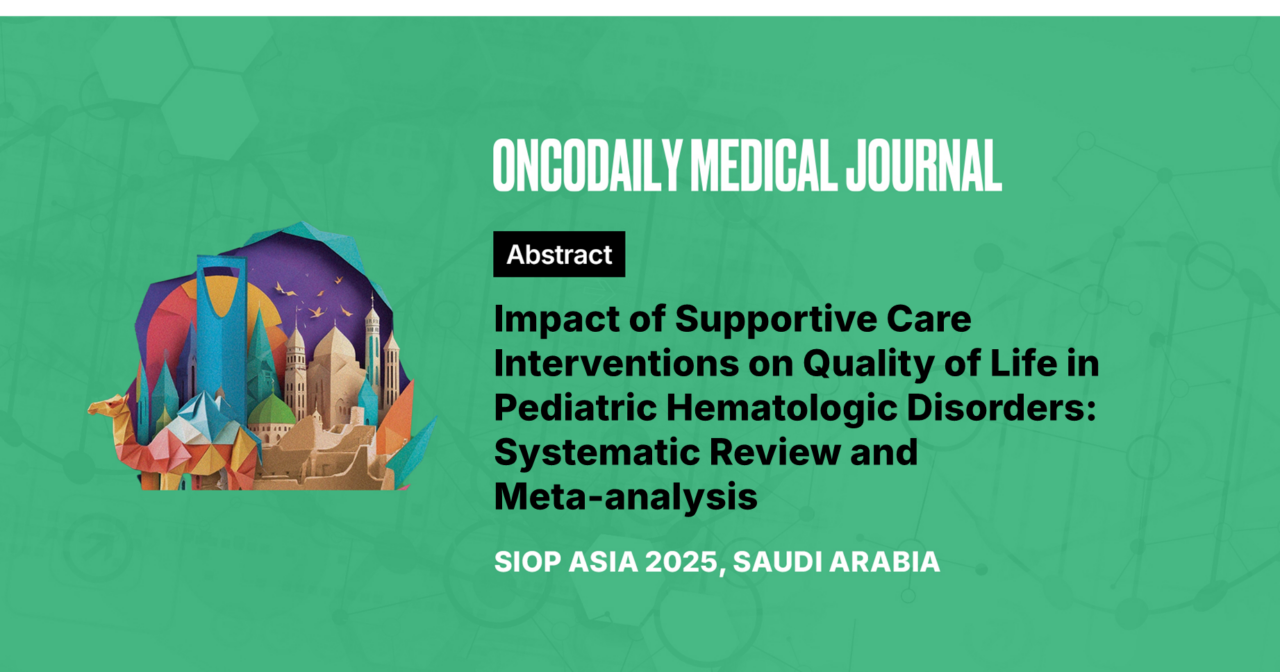Impact of Supportive Care Interventions on Quality of Life in Pediatric Hematologic Disorders: Systematic Review and Meta‑analysis
Abstract
Background: Supportive care is employed in pediatric hematology This study explores the impact of supportive care modalities on the Quality of Life in pediatric hematologic disorders.
Methodology: Studies were searched from online databases and selected against predetermined eligibility criteria. A random‐effects subgroup meta‐analysis was conducted to calculate the standardized mean difference (SMD) at 95% confidence interval. Subgroups were based on physical, emotional, familial/social, and scholarly functionalities.
Results: Six studies met the requirements for inclusion. The meta‐analysis reported a significant change in QoL when comparing initial QoL scores to final QoL scores (SMD −1.11 [−1.54, −0.68], P < 0.00001). When compared to a control standard treatment, the impact of these interventions lacks significance (SMD −0.01 [−0.67, 0.65] [P = 0.97]). Included studies explored interventions such as group creative art therapy, social support, adapted physical activity, and nurse‐led interventions (custom).
Conclusions: Standard hospital care and supportive care interventions have a relatively similar impact on the QoL of children hematologic patients.





